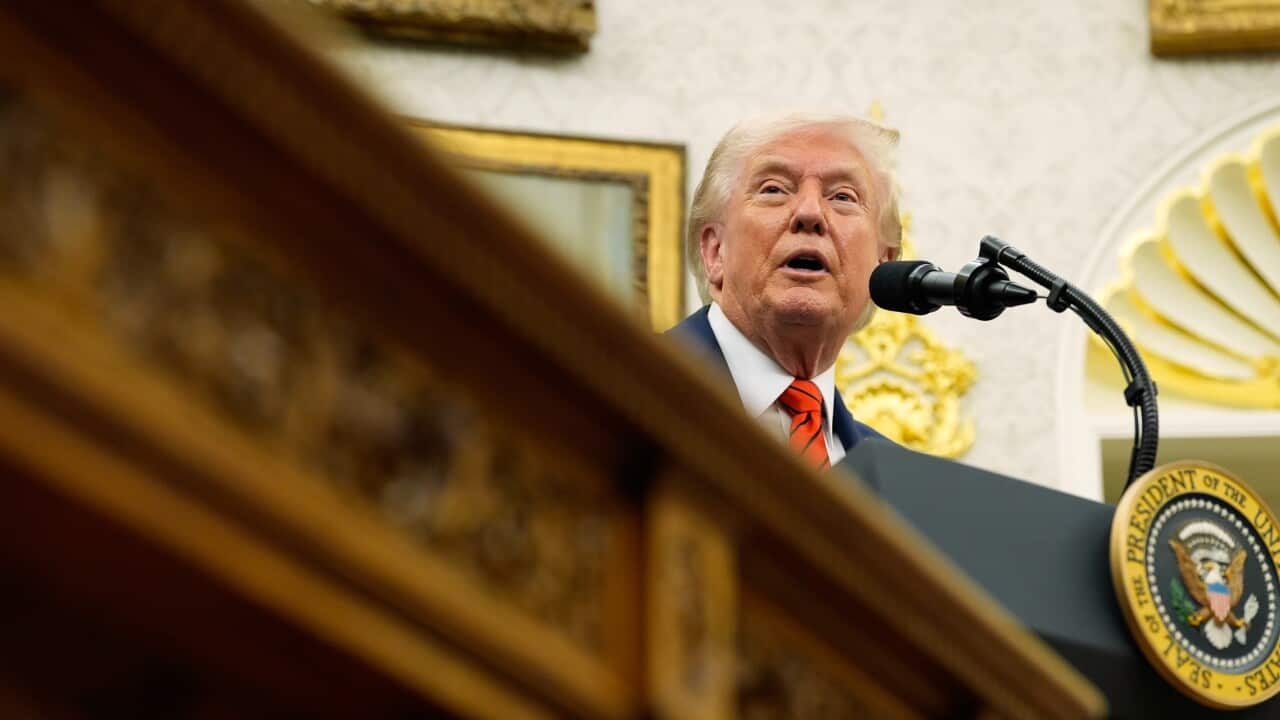After a bout of trade tensions between the United States and China escalated in recent days, US President Donald Trump has unexpectedly adopted a more conciliatory tone.
In a post on the Truth Social platform, Trump wrote: "Don't worry about China, it will all be fine! Highly respected President Xi [Jinping] just had a bad moment. He doesn't want Depression for his country, and neither do I. The U.S.A. wants to help China, not hurt it!!!"
Trump on Friday said he would impose an additional 100 per cent tariff on Chinese goods from 1 November in response to what he called "extraordinarily aggressive" new export curbs on China's rare-earth industry.
He had also questioned whether his planned meeting with Chinese President Xi Jinping in South Korea would take place, citing the ongoing trade conflict.
Why is Trump softening his approach?
It remains unclear what prompted Trump to take this softer approach.
Trump may have had an eye toward to US financial markets on the eve of the new business week.
The US stock market will be open on Monday local time, although bond markets will close for the Columbus Day holiday.
On Friday, the broad S&P 500 stock market index plunged 2.7 per cent, its worst day in about six months after Trump's tariff threat.
China accuses Trump of 'double standards'
Trump defended his earlier moves by saying China had sent "letters to countries all over the world" announcing export restrictions on rare earths and other materials.
He described the move as sudden, warning it could paralyse global trade and harm many countries.
China, in turn, accused the US of acting unfairly, with its commerce ministry calling Trump's tariff threat a "typical example of 'double standards'".
The ministry said the US had ratcheted up economic measures against China since September.
"Threatening high tariffs at every turn is not the right approach to engaging with China," it said in an online statement.
Chinese goods face US tariffs of 30 per cent under the levies Trump imposed while accusing China of aiding in the fentanyl trade as well as unfair trade practices.
China's retaliatory tariffs are currently at 10 per cent.
Why are rare earths the focal point in China-US trade war?
Rare earths have been a major sticking point in recent trade negotiations between the two superpowers.
They are critical to manufacturing everything from smartphones and electric vehicles to military hardware and renewable energy technology.
China produces over 90 per cent of the world's processed rare earths and rare earth magnets.
The 17 rare earths are vital materials in products ranging from electric vehicles to aircraft engines and military radars.
Exports of 12 of them are restricted after China's commerce ministry on Thursday added five — holmium, erbium, thulium, europium and ytterbium — along with related materials.
The commerce ministry statement sought to reassure foreign companies spooked by the latest export curbs, promising to promote compliant trade by granting general-purpose licenses and license exemptions.
"China's export controls are not export bans," it said. "Any export applications for civilian use that comply with regulations will be approved, and relevant enterprises need not worry."
For the latest from SBS News, download our app and subscribe to our newsletter.

